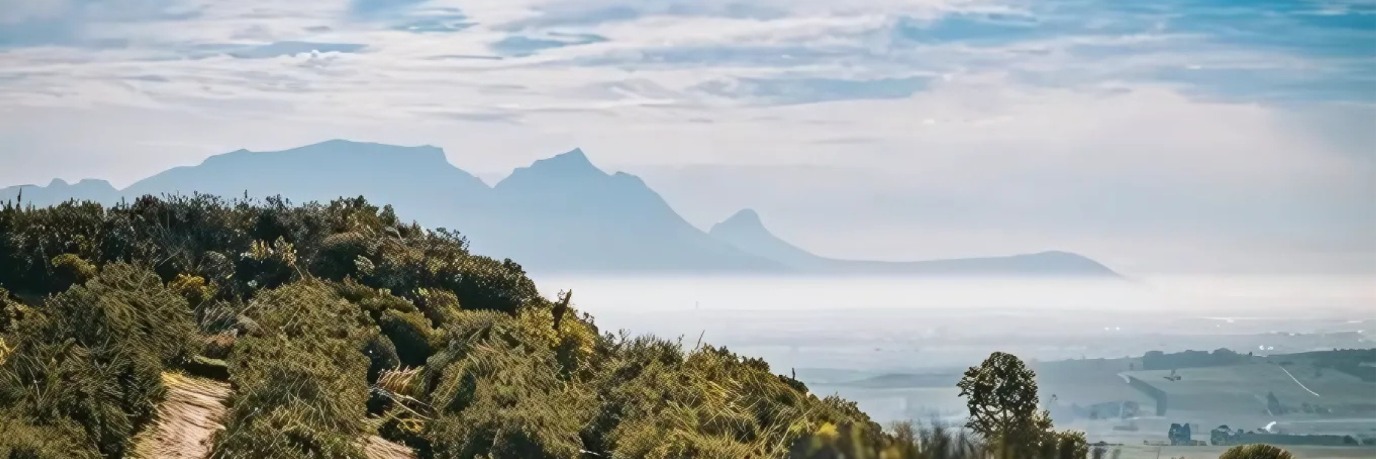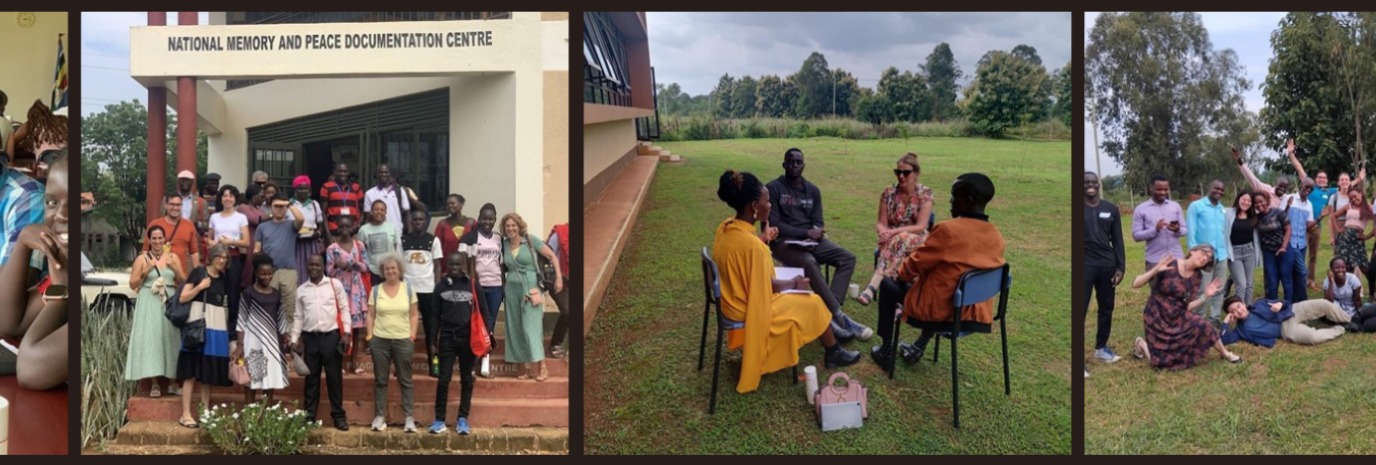Agricola Zomer- en winterscholen
Ben je enthousiast om je begrip van duurzame ontwikkeling uit te breiden? Onze jaarlijkse Zomer- en Winterscholen brengen wereldwijd experts, studenten en professionals samen voor een dynamische leerervaring die precies voor dit doel is ontworpen. Je kunt jezelf onderdompelen in interactieve workshops geleid door topdeskundigen, deelnemen aan discussies, meevaren in de Waddenregio, lokale organisaties ontmoeten, uitdagingen samen met je peers oplossen en duurzame netwerken opbouwen. Of je nu student of professional bent, sluit je bij ons aan voor een impactvolle reis om je kennis te verdiepen en bij te dragen aan het vormgeven van de toekomst van onze planeet!
Lees hieronder meer over de Summer en Winter Schools van dit jaar
Plaatsnemend in januari:

Tijdens deze winterschool zullen deelnemers de relatie tussen discours, wereldbeeld, ontologie en ethiek bestuderen, met nadruk in betrekking tot vragen over rechtvaardige duurzaamheidstransities (in het bijzonder over rechtvaardige transities in water-/voedsel-/energiesystemen). Hoe worden argumenten voor duurzamere manieren van leven op deze planeet aan verschillende doelgroepen overgebracht? Wie verzorgt deze bemiddeling, en hoe verandert de boodschap afhankelijk van de spreker en het publiek?
|
Datum |
19 - 24 januari 2025
|
|
Locatie |
Stellenbosch University, Stellenbosch, South Africa |
|
Niveau |
MA, PhD, Postdoc, Practitioners |
|
Aanmeldingsdeadline
|
Gesloten |
Plaatsnemend in mei:

De zomerschool aan de African Rural University (ARU), een exclusieve universiteit voor vrouwen in Oeganda, nodigt deelnemers uit om zich te verdiepen in community action research, plattelandsontwikkeling en duurzame verandering. Via workshops, bezoeken en gesprekken krijgen zij de kans om in contact te komen met studenten, docenten en plattelandsgezinnen om ARU’s benadering van het versterken van vrouwen als veranderingsexperts te begrijpen. Thema’s zijn onder meer plattelandsondernemerschap, klimaatverandering en actieonderzoek. Deelnemers ontwikkelen ideeën en geven workshops met gemeenschapsleden op de laatste dag. Het programma biedt een unieke combinatie van theorie en praktijk, gericht op samenwerking en leren in een dynamische plattelandsomgeving.
|
Datum |
26 – 31 mei 2025 |
|
Locatie |
Kagadi, Uganda |
|
Niveau |
3de jaars Bachelor studenten en hoger |
|
Aanmeldingsdeadline
|
Gesloten |
Plaatsnemend in juni:

Deze twee weken durende zomerschool richt zich op het ontwikkelen van vaardigheden in het beheren van sociale risico's en gevolgen die gepaard gaan met de ontwikkeling van investeringsprojecten, met name kwesties met betrekking tot landverwerving en hervestiging. De zomerschool wordt gegeven door enkele van 's werelds toonaangevende experts op het gebied van sociale beoordeling en hervestiging. Het is gericht op een internationaal publiek van huidige en toekomstige sociale prestaties en hervestigingsprofessionals, en mensen die betrokken zijn bij het bestuur van projecten vanuit publieke en private instellingen of vanuit internationale financiële instellingen. Het staat ook open voor gevorderde studenten (gevorderde MA-studenten en PhD-studenten) die geïnteresseerd zijn in het praktische beheer van sociale vraagstukken in verband met ontwikkeling.
|
Datum |
16 - 27 June 2025 |
|
Locatie |
Boğaziçi University, Istanbul, Türkiye |
|
Niveau |
Advanced MA, PhD, Postdoc, Practitioners |
|
Aanmeldingsdeadline
|
Gesloten |

SuRe heeft tot doel academici en studenten uit verschillende disciplines binnen de sociale en gedragswetenschappen en de geesteswetenschappen samen te brengen, wiens werk gerelateerd is aan weerbaarheidskwesties op het micro-niveau van individuen, het meso-niveau van collectieven (organisaties, gemeenschappen, families), het macro-niveau van samenlevingen en hun instellingen, evenals de conceptuele of ethische dimensies daarvan. Voorzien van deze kennis zullen deelnemers worden opgeleid in een inter- en transdisciplinaire leeromgeving die theorie, methoden en praktijk combineert in groepsprojecten. De Zomerschool vindt plaats in de prachtige stad Rome en staat open voor (uitstekende) REMA-studenten, PhD-studenten, postdocs en beleidsmakers.
|
Datum |
23 - 28 June 2025 |
|
Locatie |
Rome, Italy, Royal Netherlands Institute |
|
Niveau |
ReMa/MA/PhD/Practitioners |
|
Aanmeldingsdeadline
|
Gesloten |
Plaatsnemend in juli:

Eilanden dienen als ideale 'laboratoria' voor het onderzoeken van de complexe wisselwerking tussen ecologische, sociale en economische duurzaamheid. Tijdens de zomerschool zullen deelnemers zich verdiepen in belangrijke onderwerpen, waaronder de uitdagingen en bevorderaars van cultureel, economisch en sociaal welzijn, milieubeheer en stedelijke planning, toerisme en geluk op eilanden. De belangrijkste onderwijsactiviteiten vinden plaats op Bali en het kleinere naburige eiland Nusa Lembongan, met excursies op beide eilanden. Deze meeslepende ervaring biedt een unieke combinatie van academische verkenning en praktische inzichten, wat een genuanceerd begrip oplevert van de complexe uitdagingen rond duurzaamheid, levenskwaliteit en geluk op eilanden. De Zomerschool staat open voor masterstudenten, PhDs, postdocs en praktijkdeskundigen.
|
Datum |
28 June – 6 July 2025
|
|
Locatie |
Iceland |
|
Niveau |
MA/MSc/PhD/Postdoc/Practitioners |
|
Aanmeldingsdeadline
|
Gesloten
|

Over de hele wereld lijden samenlevingen onder een steeds meer gepolariseerd publiek domein. Deze polarisatie van het publieke domein verkleint de ruimte voor constructieve en samenwerkende processen, wat op zijn beurt de democratie ondermijnt en onze capaciteit vermindert om gezamenlijk de enorme uitdagingen van onze tijd aan te pakken, zoals de klimaatcrisis en maatschappelijke ongelijkheid. Tijdens deze zomer school zullen studenten leren over en zich bezighouden met actuele debatten en opkomende wetenschappelijke inzichten die onze gepolariseerde tijden adresseren en analyseren. Ze zullen in gemengde groepen (wat betreft zowel discipline als land van studie) samenwerken aan het ontwikkelen van een interventie om polarisatie in een specifiek context te verminderen, als uitdaging ingebracht door externe maatschappelijke partners.
|
Datum |
29 June - 4 juli 2025 |
|
Locatie |
Stellenbosch University, Stellenbosch, South Africa |
|
Niveau |
BA/MA/(PhD als er nog plekken zijn) |
|
Aanmeldingsdeadline
|
Gesloten
|

Deze zomerschool richt zich op de uitdagingen en mogelijkheden van financiële inclusie in lage-inkomenslanden en opkomende economieën, met speciale aandacht voor Afrika. Ondanks ingrijpende financiële hervormingen blijven veel huishoudens en ondernemingen uitgesloten van het formele financiële systeem. De cursus onderzoekt hoe financiële ontwikkeling kan bijdragen aan inclusieve en duurzame economische groei, met aandacht voor de effecten op armoedebestrijding. Onderwerpen zijn onder andere recente ontwikkelingen in onderzoek naar financiële inclusie, waaronder microfinanciering. De zomerschool wordt verzorgd door docenten van de Stellenbosch Business School, de Université Laval en de Rijksuniversiteit Groningen.
|
Datum |
6 - 11 juli 2025 |
|
Locatie |
Stellenbosch Universiteit, Stellenbosch, Zuid Afrika |
|
Niveau |
MA/PhD/postdoctoral researchers/alumni |
|
Aanmeldingsdeadline
|
Gesloten
|

Wat doen raden van bestuur? Welke factoren beïnvloeden wat ze doen en hoe ze het doen? Hoe presteren ze en dragen ze bij aan de algehele prestaties van het bedrijf dat ze vertegenwoordigen? Deze zomer school heeft als doel deze vragen te beantwoorden door een multidisciplinaire benadering, waarbij onderzoek uit economie, financiën, management, sociologie en psychologie wordt besproken. Tijdens deze Zomer School zullen deelnemers ook datasets en methodologieën bespreken en worden uitgenodigd om hun eigen onderzoeksideeën op het gebied van bestuurs effectiviteit te presenteren. De Zomer School staat open voor research master studenten, PhD studenten, postdocs, academici en professionals met een duidelijke interesse in academisch onderzoek.
|
Datum |
7 - 11 juli 2025 |
|
Locatie |
Groningen, the Netherlands |
|
Niveau |
Research Master/PhD/Postdoc/Academic/Practitioner |
|
Aanmeldingsdeadline
|
19 mei 2025 |

De Illicit Trade Summer School, die plaatsvindt aan de Vrije Universiteit Brussel (VUB) van 7 tot 11 juli 2025, is een unieke leerervaring waarin de complexiteit van illegale handel en de impact ervan op geopolitiek en wereldwijde toeleveringsketens wordt onderzocht. De cursus wordt georganiseerd door de Rijksuniversiteit Groningen in samenwerking met de Global Initiative against Transnational Organized Crime (GI-TOC) en wordt gehost door het CSDS aan de VUB. Het programma biedt een mix van academische en praktijkgerichte sessies, waaronder lezingen, workshops en casestudy’s. Onder leiding van experts krijgen deelnemers diepgaande inzichten in de economische, sociale en veiligheidstechnische dimensies van illegale handel.
|
Datum |
7 - 11 juli 2025 |
|
Locatie |
Vrije Universiteit Brussels, Brussels, Belgium |
|
Niveau |
BA (laatste jaar), MA, PhD en practitioners |
|
Aanmeldingsdeadline
|
31 mei 2025 |

Deze zomerschool onderzoekt de grondoorzaken van ongelijkheid, armoede en deprivatie in Afrika, met aandacht voor de grote regionale verschillen op het continent. Hoewel de oorzaken per context verschillen, zijn er structurele factoren die vaak terugkeren. De cursus behandelt historische oorzaken van ongelijkheid, financiële inclusie, (gender)ongelijkheid, politieke dynamiek, databeschikbaarheid voor empirisch onderzoek en normatieve perspectieven op ongelijkheid. De interactieve sessies worden verzorgd door experts van het CoRE IPD-netwerk, waaronder de Universiteit van Kaapstad, de Universiteit van Ghana, de Universiteit van Nairobi en de Rijksuniversiteit Groningen. De zomerschool combineert kritisch debat met praktijkgerichte inzichten.
|
Datum |
22 - 26 juli 2025 |
|
Locatie |
University of Ghana, Legon, Ghana |
|
Niveau |
Onderzoeksmastersstudenten, promovendus, postdoctorale onderzoekers, onderzoekers |
|
Aanmeldingsdeadline
|
Gesloten |

Deze vijfdaagse zomercursus richt zich op het ontwikkelen van praktische vaardigheden voor het uitvoeren van rigoureuze impactevaluaties ter verbetering van ontwikkelingsresultaten, met een specifieke focus op de Afrikaanse context. De cursus wordt gegeven door ervaren onderzoekers en praktijkexperts, en behandelt experimentele methoden zoals gerandomiseerde gecontroleerde proeven, quasi-experimentele benaderingen zoals regressiediscontinuïteit, en niet-experimentele technieken zoals propensity score matching en difference-in-differences. Deelnemers leren ook over het opstellen van een theory of change, datamanagement, ethische goedkeuringen en pre-analyseplannen. De cursus is bedoeld voor professionals en master- of PhD-studenten die werkzaam zijn in ontwikkelingsonderzoek. Basiskennis van STATA is vereist voor de praktische sessies.
|
Datum |
26 – 31 juli 2025 |
|
Locatie |
University of Ghana, Legon, Ghana |
|
Niveau |
Professionals en postdoctorale studenteb |
|
Aanmeldingsdeadline
|
Gesloten |
Plaatsnemend in augustus:

Hoe stuur je richting duurzaamheid op landschapniveau? In het noorden van Nederland ligt de Werelderfgoed Waddenzee-regio, die sterk gericht is op duurzame ontwikkeling. Het doel van deze zomerschool is om de uitdagingen van sturen naar duurzaamheid op landschapniveau te verkennen. Ga met ons mee op een vijfdaagse zeilreis met lezingen door toonaangevende experts die je wetenschappelijke perspectieven uit verschillende vakgebieden zullen bieden. Je zult de thema's van cultureel erfgoed; kusttoerisme; landschapsbeheer; regionale voedselproductie; en duurzame ondernemerschap verkennen.
Kijk hier de video over de Agricola Wadden Experience
|
Datum |
25 - 29 augustus 2025 |
|
Locatie |
Harlingen - Lauwersoog via Terschelling, Ameland en Schiermonnikoog, aan boord van de clipper Willem Jaco |
|
Niveau |
BA/MA/PhD studenten, Postdocs, Practitioners |
|
Aanmeldingsdeadline
|
Gesloten
|
| Laatst gewijzigd: | 11 juni 2025 16:12 |

